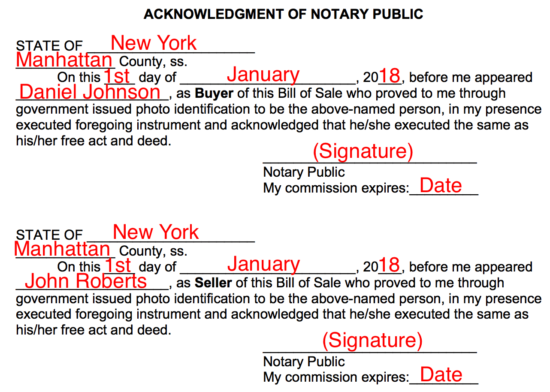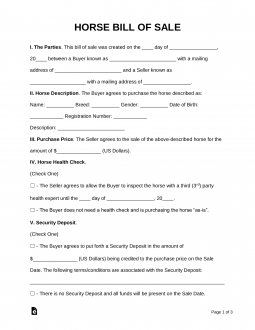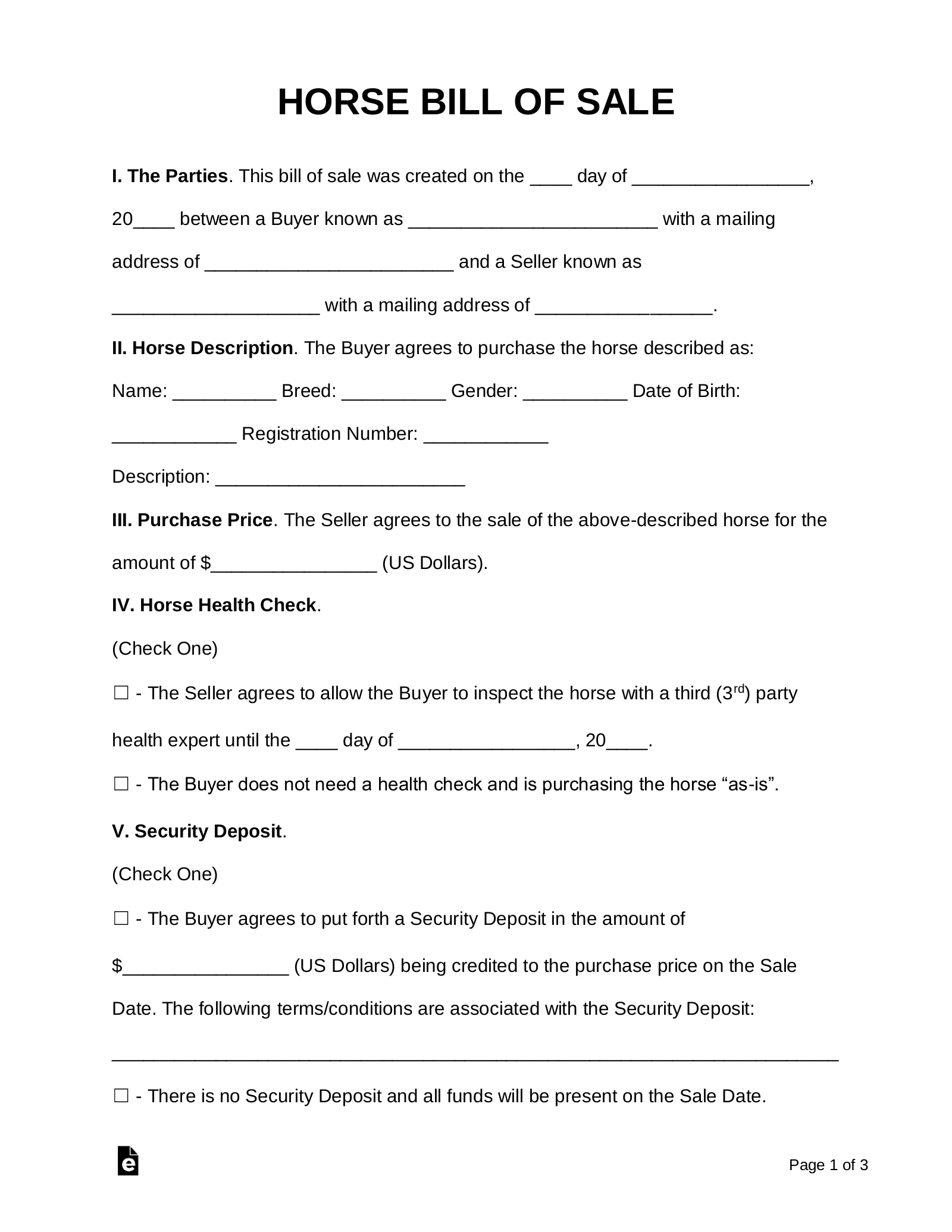Updated June 17, 2023
A horse bill of sale is a legal document that details a transaction between two parties concerning the sale and, therefore, change of ownership of a horse (or ‘equine’). A deposit will likely be required if the animal needs a health examination before finalizing the purchase. Should the parties move forward with the sale of the animal, the deposit amount will be deducted from the balance due.
When Should I Use a Horse Bill of Sale?
Anytime you plan on selling, buying, or transferring ownership of a horse from one person to another, you will need a Horse Bill of Sale. This sales document is essential in detailing everything related to the purchase and transfer.
This is a legally binding document. You’ll need this document if there is a dispute about the valid owner of the horse or if questions come up about its lineage.
How Do I Go About Buying a Horse?
Owning a horse is a huge personal responsibility. They’re costly and require lots of knowledge and experience. But if you’re a new owner ready for the commitment or an experienced owner adding to your herd, follow the steps below.
1. Decide on the Horse You Want
Are you a horse breeder, a rancher, or looking for a horse to show in a particular discipline? Or are you just looking for a family horse for the kids? There are a lot of different horses out there, and it’s essential to know which kind of horse you want to buy.
If this is your first time buying a horse, starting with a calm, well-trained horse may be best. Be sure to consult with an experienced horse person to figure out your needs. If you’re planning to breed or use the horse for showing or sports, you hopefully already know everything you need to know, but it’s always a good idea to do your research and consult with experienced individuals.
2. Figure out Your Budget
Horses need ample space, a sturdy fence, shelter, a lot of food, and plenty of care. This can be very taxing on your finances if you aren’t ready. So before you buy, work out a budget for food, tack, vet costs, boarding, and everything else you’ll need.
3. Find a Seller
If you’re ready to buy a horse, look for sellers from people you know, breeders, ads, or auctions. Verify the seller’s credibility and ask lots of questions about the horse. Chances are, if the seller’s record is clear and they’re knowledgeable about the horse, they’re a trustworthy seller.
4. Test Out the Horse In Person
It’s essential to see the horse firsthand before you buy. Watch the owner handle the horse, handle it yourself, and ride it if possible. Ask about its history, if it has any injuries or health issues, and if there is anything else you should know about it. Get a vet out to check its health, too. Taking an experienced friend or trainer along is also a great idea.
You’ll want to see the horse several times to ensure it’s in good health and the right fit for you. Ask the seller if you can take the horse home on trial if possible. Most will agree, and you’ll be able to make sure it’s the right fit for you.
5. Negotiate a Price and Put Down a Deposit
When you’re confident this is your desired horse, it’s time to negotiate a price. Put it in writing once an agreement is made. You’ll also want to put down a good-faith deposit to show you’re serious about the purchase.
6. The Pre-Purchase Vet Examination
It’s always best to schedule a physical with a vet to ensure the horse doesn’t have health concerns. With a Horse Bill of Sale, sales are as-is. You don’t want to spend good money on an unsound horse.
7. Finalizing the Sale
Once the bill of sale is complete and payment finalized, have the bill of sale notarized to secure the purchase against potential fraud. You can usually find a public notary at your local or county offices. Congratulations—you’re the new owner of a horse!
Video
How to Write a Horse Bill of Sale
Step 1 – Date and Parties
- Enter the date on which the document is being created
- Seller’s Name
- Seller’s Mailing Address
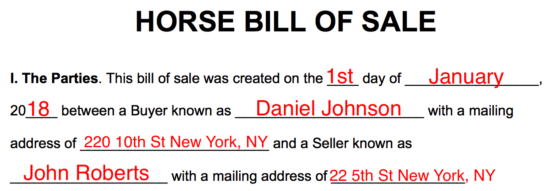
Step 2 – Horse Description
- Horse’s Name (if named)
- Breed
- Gender
- Date of Birth
- Registration Number
- Enter a proper description of the horse

Step 3 – Purchase Price Information
- Enter the amount of the agreed purchase price
- Check the box that best indicates the new owner’s intention about a health check.
- If a health examination has been requested, enter the final date that the check-up must be completed.

Step 4 – Security Deposit
- Enter the agreed amount of the Security Deposit
- OR
- Check the box refusing deposit but full payment when the buyer is prepared to purchase
- The seller must read the “Other Claims” section of the document and must read and agree. before the application of signature
- Governing law – Enter the state in which the horse is being purchased

Step 5 – Signatures
- Date the signatures in dd/mm/yyyy format
- Provide the Seller’s Signature/Printed Name
- Buyer’s Signature/Printed Name
- Witness’ Signatures/Printed Names
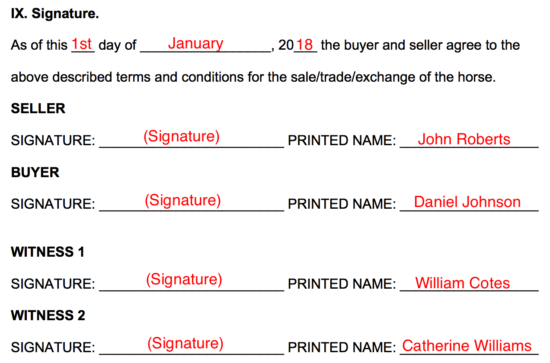
Step 6 – Acknowledgement of Notary Public
As the document is completed and the signing parties have provided identification, the notary will provide their required information and acknowledgment.
